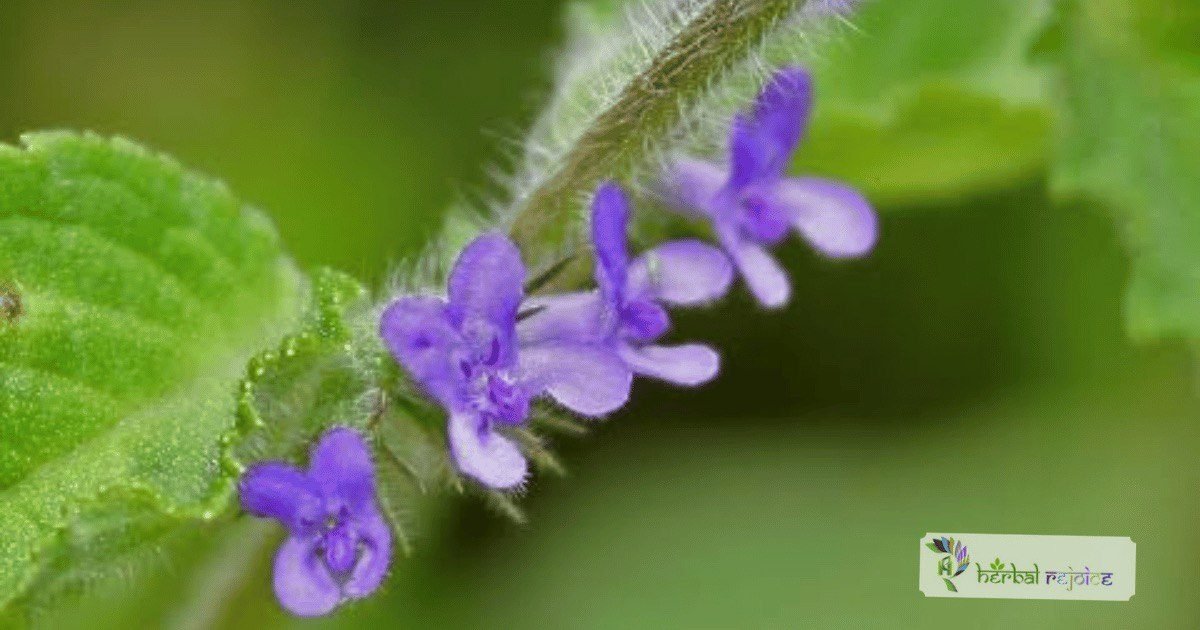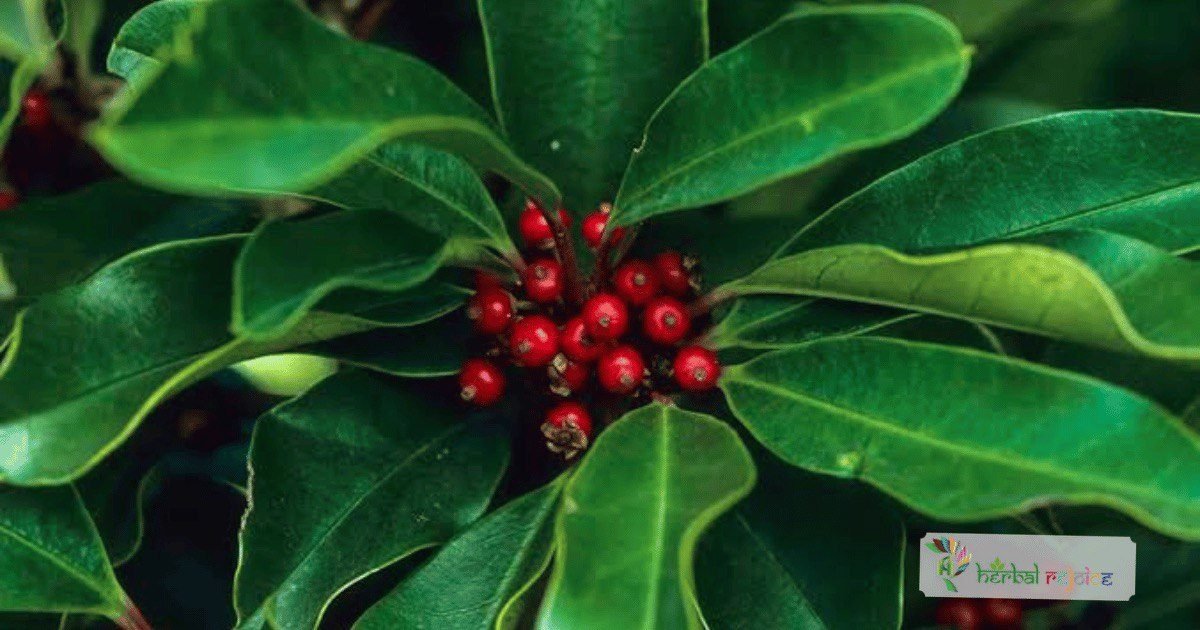Introduction
English Holly (Ilex aquifolium Linn.), also known as Common Holly, is a native plant to Europe. Although it is primarily grown in gardens at hill stations, its medicinal properties have been recognized for centuries. T
he leaves of English Holly have diaphoretic and febrifuge properties, making them useful in treating conditions such as catarrh, pleurisy, intermittent fever, smallpox, and rheumatism. They have also been traditionally used in the treatment of jaundice.

Traditional Uses of English Holly
On the other hand, the berries of this plant have a completely different set of qualities. They are known to be violently emetic and purgative, and are commonly employed in the treatment of dropsy. Additionally, powdered berries can be used as an astringent to stop bleeding.
Active Components of English Holly
The English Holly plant contains several active compounds, including ilicin, ilexanthin, theobromine (only found in the leaves), and caffeic acid. The alkaloid theobromine, found in the leaves, is known to be useful in the treatment of asthma.
In Greece, boiled leaves are used as a traditional remedy for enlarged prostate. However, it is important to note that an extract of the English Holly plant has been found to cause a fatal drop in blood pressure in rats, indicating potential toxicity.
It is crucial to use this plant under the guidance of a healthcare professional.
Furthermore, the ethanolic extract of the fruits of English Holly contains cyanogenic glucosides. While the specific effects of these compounds are not detailed, it is important to consider the potential risks associated with their consumption.
Conclusion
In conclusion, English Holly (Ilex aquifolium Linn.) is a plant with both medicinal benefits and potential risks. Its leaves are known for their diaphoretic, febrifuge, and astringent properties, while the berries have violent emetic and purgative properties.
The plant contains various compounds, such as ilicin, ilexanthin, theobromine, and caffeic acid, each with its own therapeutic potential.
However, it is crucial to exercise caution when using this plant, as it has been found to cause a fatal drop in blood pressure in rats and contains cyanogenic glucosides in its fruits.
Frequently Asked Questions
What are the medicinal properties of English Holly?
The leaves of English Holly have diaphoretic, febrifuge, and astringent properties, making them useful in treating conditions such as catarrh, pleurisy, intermittent fever, smallpox, and rheumatism.
Can English Holly leaves be used to treat jaundice?
Yes, English Holly leaves are traditionally used in the treatment of jaundice.
What are the properties of English Holly berries?
English Holly berries are known to be violently emetic and purgative, making them commonly employed in the treatment of dropsy.
How can powdered English Holly berries be used?
Powdered English Holly berries can be used as an astringent to stop bleeding.
What active compounds are found in the English Holly plant?
The English Holly plant contains ilicin, ilexanthin, theobromine (only found in the leaves), and caffeic acid.
How is the alkaloid theobromine found in the leaves of English Holly useful?
The alkaloid theobromine, found in the leaves, is known to be useful in the treatment of asthma.
Are English Holly leaves used as a traditional remedy in Greece?
Yes, boiled English Holly leaves are used as a traditional remedy for enlarged prostate in Greece.
Is English Holly potentially toxic?
Yes, an extract of the English Holly plant has been found to cause a fatal drop in blood pressure in rats, indicating potential toxicity.
Can the consumption of English Holly fruits be risky?
Yes, the fruits of English Holly contain cyanogenic glucosides, and the specific effects of these compounds are not detailed. It is important to consider the potential risks associated with their consumption.
What precautions should be taken when using English Holly for medicinal purposes?
It is crucial to use English Holly under the guidance of a healthcare professional due to its potential toxicity and the presence of cyanogenic glucosides in its fruits.
Can English Holly be grown in gardens?
Yes, English Holly is primarily grown in gardens, especially at hill stations.
Is English Holly a native plant to Europe?
Yes, English Holly is a native plant to Europe.
How long has the medicinal use of English Holly been recognized?
The medicinal properties of English Holly have been recognized for centuries.
What conditions can English Holly leaves treat?
English Holly leaves can be useful in treating conditions such as catarrh, pleurisy, intermittent fever, smallpox, and rheumatism.
Do English Holly berries have any medicinal properties?
Yes, English Holly berries have medicinal properties as they are commonly employed in the treatment of dropsy.
Can English Holly berries be used to stop bleeding?
Yes, powdered English Holly berries can be used as an astringent to stop bleeding.
Are there any potential risks associated with using English Holly?
Yes, English Holly has been found to cause a fatal drop in blood pressure in rats, indicating potential toxicity.
Should I seek guidance from a healthcare professional before using English Holly for medicinal purposes?
Yes, it is advised to seek guidance from a healthcare professional before using English Holly for medicinal purposes.
Can English Holly be used as a treatment for enlarged prostate?
Boiled English Holly leaves are used as a traditional remedy for enlarged prostate in Greece.
Are there any potential risks associated with consuming English Holly fruits?
The fruits of English Holly contain cyanogenic glucosides, and the specific effects of these compounds are not detailed. It is important to consider the potential risks associated with their consumption.





